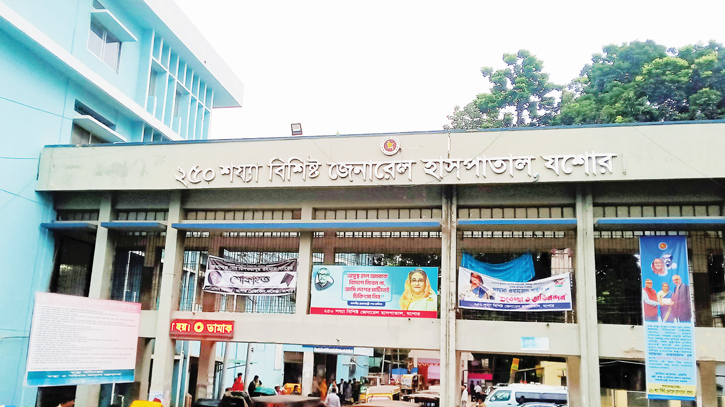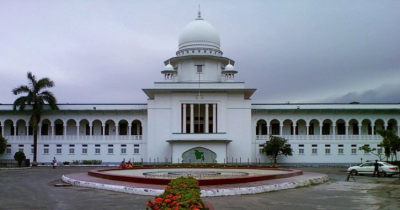
A view of Jashore 250-Bed Sadar Hospital. Photo: Messenger
Jashore 250-bed General Hospital, a vital healthcare institution catering to a significant population, is grappling with a severe shortage of doctors, adversely impacting patient care on a daily basis.
With only 49 doctors on board, the hospital's services are stretched thin, unable to meet the demands of the influx of patients. Operating at full capacity with just a fraction of the required medical staff, the hospital finds itself overwhelmed and unable to provide adequate medical attention to those in need. The imbalance between patient load and available medical personnel has created a crisis situation within the hospital.
The root of this problem lies in the discrepancy between the number of beds and the manpower available to manage them effectively. Despite being designated as a 250-bed hospital, the institution operates with a workforce suitable for a mere 100 beds. This glaring disparity exacerbates the strain on the limited number of doctors, compromising the quality of care provided to patients.
Efforts to address this issue have been met with bureaucratic hurdles, as the hospital authorities' pleas for additional specialist doctor positions have gone unanswered by the ministry. Despite submitting requests for the creation of 32 specialist doctor posts, the hospital remains understaffed, exacerbating the strain on the existing medical team.
Administrative sources reveal that out of a total of 54 doctor posts, only 49 are currently filled, leaving 5 critical positions vacant, including 3 senior consultants and 2 junior consultants. As a result, doctors are forced to juggle responsibilities beyond their capacity, leading to burnout and compromised patient care.
The situation is further exacerbated by the reluctance of specialist doctors to fulfill their duties diligently. Many specialists, having been promoted and transferred to medical colleges, fail to prioritize their responsibilities at the 250-bed hospital. This lax attitude towards duty leaves junior doctors and medical officers to shoulder the burden of patient care, often beyond their expertise.
Patients and their families, bearing the brunt of this crisis, express frustration at the subpar services offered by the hospital. The shortage of doctors, coupled with negligence and inefficiency, results in patients being referred elsewhere for treatment, adding to their ordeal.
Assistant registrar doctors, on the front lines of patient care, lament the challenges they face in the absence of specialist support. Despite their best efforts, they struggle to cope with the overwhelming patient load, grappling with the repercussions of specialist absenteeism.
Dr. Harunur Rashid, the hospital supervisor, acknowledges the disruptions caused by the doctor shortage, emphasizing the urgent need for additional medical staff to improve patient care. Regular appeals to the Ministry of Health for the creation of new doctor positions underscore the hospital's commitment to addressing this pressing issue.
The plight of Jashore 250-bed General Hospital serves as a stark reminder of the critical importance of adequate staffing in healthcare institutions. Without sufficient doctors to meet patient needs, the quality of care is compromised, leaving vulnerable individuals at risk. Urgent intervention is required to alleviate the strain on the hospital and ensure that patients receive the attention and treatment they deserve.
Messenger/Fameema








